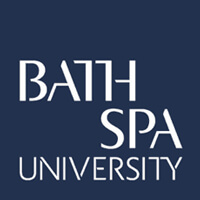fees waived
Wildlife Conservation, BSc (Hons)
Bath Spa University, United Kingdom
Ranking in UK
Geography and Environmental Science
Costs
food & rent S$18.8k / year
Entry requirements
Scholarships
2 available
Unlimited quantity
Unlimited quantity
Unlimited quantity
Limited quantity
Information
Code
Code
Intakes
Website (External)
Programmes
Information
Duration
2029
This wildlife conservation degree offers an interdisciplinary exploration of conservation biology, ecology, and human-wildlife interactions, equipping students to address global biodiversity challenges through creative approaches. Students will study the biology of animals, plants, and ecosystems worldwide, gaining hands-on experience in fieldwork, laboratories, and classrooms. The program emphasizes practical skills, habitat management, and the integration of social, economic, and artistic elements to protect the natural world. Accredited by the Royal Society of Biology, it ensures a strong foundation in biological knowledge and transferable skills.In the first year, foundational concepts in biology, ecology, and conservation are covered, building essential scientific and fieldwork skills. The second year introduces applied topics like animal behaviour, environmental management, and research techniques, including GIS and placements. The final year focuses on practical application through field courses, a dissertation, and optional modules in areas such as environmental politics and marine biology. Assessments include coursework, practical reports, digital projects, presentations, and exams, allowing customization to individual interests.
In year one, you'll study the fundamental concepts of biology, ecology, conservation and natural history. You'll learn key scientific, analytic, practical fieldwork and communication skills that you'll use throughout your degree and beyond. Your second year introduces more applied content, and includes key research skills, a work placement opportunity, animal behaviour, ecology, environmental management, and an independent project. You'll learn practical techniques, such as Geographical Information Systems (GIS), both on campus and on a residential field course, and you will carry out small group projects. There will also be opportunities for multidisciplinary study including fields such as environmental philosophy, creative arts, geotechnologies and education. In your third year, you'll learn how to put what you have learned into practice, with a focus on more specific skills needed for the workplace. The year will start with a choice between an international and UK field course which will bring together many of the things you have learned in the first two years. You'll conduct your own dissertation research project and explore how you can work with society to create change through a choice of optional modules. Opportunities for multidisciplinary study will continue, allowing you to take novel approaches to conservation tailored to your interests, for example, environmental politics, marine biology, behavioural psychology and wildlife filmmaking.
A local representative of Bath Spa University in Singapore is available online to assist you with enquiries about this course.

